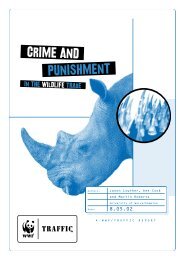Deeper Luxury Report - WWF UK
Deeper Luxury Report - WWF UK
Deeper Luxury Report - WWF UK
Create successful ePaper yourself
Turn your PDF publications into a flip-book with our unique Google optimized e-Paper software.
5. The growing scarcity and cost of natural resources<br />
and sinks – as industrialisation and consumerism<br />
spread throughout the southern hemisphere,<br />
businesses will be forced to respond.<br />
6. Growth in brand value relative to corporate value –<br />
this, combined with the growing proportion of brand<br />
value associated with environmental and social<br />
performance, will lead investors to call for greater<br />
corporate sustainability.<br />
All the business reasons outlined here also apply to other<br />
sectors, but most are of greater relevance to the luxury<br />
sector. Of particular note are the rise in the emotional<br />
and financial value of brands, and the consequent rise<br />
in their sensitivity to cultural shifts. The greatest cultural<br />
shift of the 21 st century has been the rise in concern<br />
over environmental and social problems, and the greatest<br />
rise in such concern is among middle-class consumers.<br />
The Global Wave of Awareness<br />
In our 2005 report, Let Them Eat Cake: Satisfying the<br />
new consumer appetite for responsible brands 16<br />
, we<br />
showed that, in Western markets, environmental and<br />
social issues are no longer the sole concern of a<br />
minority of socially-conscious people, but of a sizeable<br />
proportion of mainstream, brand-conscious consumers<br />
who want to purchase the quality they expect at a<br />
reasonable price, but with social and environmental<br />
performance built in.<br />
Since then, and particularly in 2007, we have witnessed<br />
a rapid rise in the awareness of environmental issues<br />
among US consumers. Nearly one in four American<br />
adults now subscribes to a new set of values that<br />
typically includes “environmentalism, feminism, global<br />
issues and spiritual searching”. Most of these so-called<br />
“cultural creatives” are well-educated and relatively<br />
affluent. 17<br />
No wonder, then, that sales of top-end hybrid<br />
cars, such as Toyota’s Lexus 450h, are booming. 18<br />
Although sometimes dubbed an “old market” for luxury,<br />
the Financial Times reminds us that “the world’s largest<br />
consumer market still presents far more immediate<br />
opportunities for growth than the much discussed<br />
emerging promises of Russia, India and China”. 19<br />
The latest consumer research on the luxury market in<br />
Europe tells the same story: “The wealthy are increasingly<br />
concerned about environmental issues”, says Ledbury<br />
Research. 20<br />
This not only means shopping differently,<br />
but sometimes not at all; industry specialist Luxe etc<br />
reports that some wealthy consumers “regard luxury<br />
products, such as fine jewellery, well crafted time<br />
pieces and fast cars, as conspicuous wastes”. 21<br />
Analysts at the <strong>UK</strong>’s Future Laboratory believe that<br />
“overconsumption is no longer a signal of success” and<br />
that it is being replaced by “conspicuous abstention”. 22<br />
Walpole, the <strong>UK</strong>’s industry association for luxury brands,<br />
attributes this to a broader emphasis by consumers on<br />
ethics; in 2007, it emphasised social values as one area<br />
to which its members should pay more attention.<br />
In the US, this is not a passing fad but an enduring<br />
trend, according to professors Ronald Michman and<br />
Edward Mazze. 23<br />
Looking at Europe, the editor of the<br />
Financial Times, Lionel Barber, agrees that the trend<br />
is here to stay. 24<br />
But what of the rest of the world? There is a widespread<br />
belief that consumers in Asia, Africa, Latin America and<br />
eastern Europe are not aware or don’t care about the<br />
social and environmental performance of the companies<br />
from which they buy products and services. Given other,<br />
more urgent and immediate preoccupations (such as the<br />
need to escape from poverty and ill health) this has been<br />
true to a certain degree. However, there is evidence of<br />
a wave of eco-awareness sweeping the urban middle<br />
classes across these continents, with significant<br />
implications for business.<br />
Across Asia – the focus of so much strategic planning<br />
in the luxury sector – something surprising happened in<br />
2007: green issues suddenly became cool. In April 2007,<br />
Cosmopolitan Hong Kong magazine featured a 25-page<br />
eco-awareness supplement that aimed to educate<br />
readers on the importance of green living. Many other<br />
fashion and lifestyle publications also discussed the<br />
implications of environmental issues for shopping and<br />
living. In Thailand, Singh Intrachooto, founder director<br />
of OSISU luxury recycled furniture, confirmed that “green<br />
consumerism is growing in Asia. A year ago OSISU


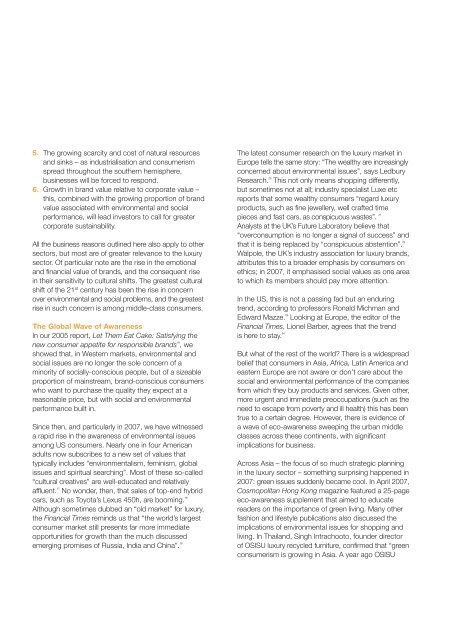
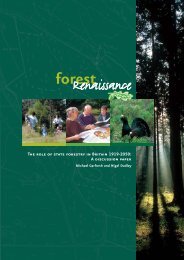
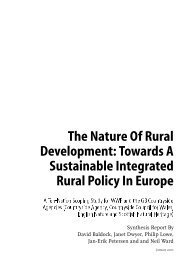
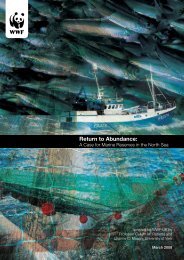


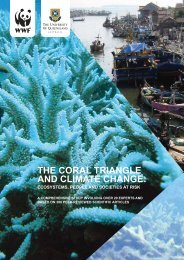

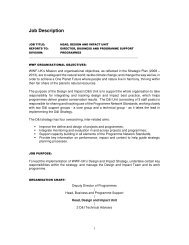
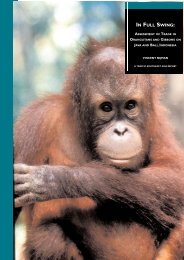
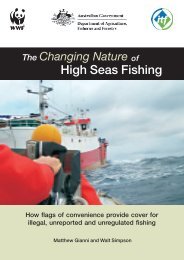

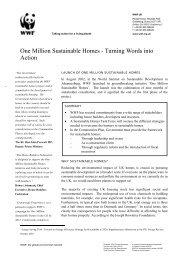
![[PDF] Causes for concern: chemicals and wildlife - WWF UK](https://img.yumpu.com/31929970/1/184x260/pdf-causes-for-concern-chemicals-and-wildlife-wwf-uk.jpg?quality=85)
